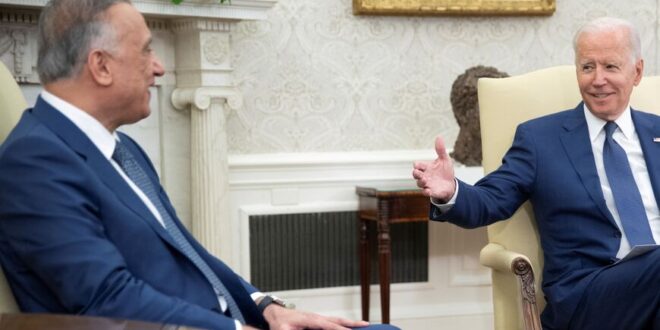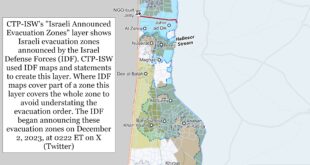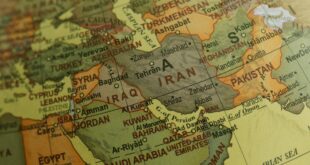Amid longstanding political deadlock and economic and environmental challenges, Iraqi prime minister Mustafa Kadhimi is attending the GCC +3 Summit in Saudi Arabia.
Iraq announced officially today that it will participate in the GCC+3 Summit on Saturday, July 16. The summit includes the leaders of the six Gulf Cooperation Council countries, Egypt, Jordan and Iraq, as well as US President Joe Biden.
“The conference will discuss energy, food security, and environmental challenges, and outline steps for cooperation, partnership, and joint coordination,” Iraqi prime minister Mustafa Kadhimi’s office announced Jul 13.
Prior to the announcement, Iran-backed groups in Iraq criticized Iraq’s presence in the summit, based on allegations that the summit includes anti-Iran agendas and normalization with Israel.
The Coordination Framework, which includes Shiite militias and other Shiite parties supported by Iran, have even hosted the prime minister recently to inquire about Iraq’s objectives for attending.
In response, Kadhimi’s statement emphasized “the principle of moderation, maintaining balance, and moving away from the policy of axes.” That clearly confirms that the summit does not include normalization attempts or any alliance against Iran, or otherwise Iraq would had not participated.
In an article published by Foreign Policy today, Kadhimi highlighted the progress Iraq has made during his premiership, including balancing Iraq’s relationship with its Arab neighbors and promoting negotiations between regional foes in the Middle East.
He also focused on economic progress in solar energy programs, pipeline projects and electricity grid connection with neighboring countries.
Kadhimi acknowledges that Iraq democracy is still young and vulnerable, especially after elections, but he said overcoming the challenges requires patience and Iraqi-based solutions.
The summit comes at a crucial time for Iraq, as the formation of the new government has been delayed for nine months.
The Sadrist bloc won the elections with 73 seats and formed an alliance with the Taqaddom bloc, led by the parliament speaker Muhammad Halbousi, and the Kurdistan Democratic Party, led by Masoud Barzani. However, the alliance was not able to reach the two-thirds majority required for selecting the president.
Following three failed attempts, Sadr withdrew from the parliament last month, opening the space for his Shiite rivals, the Coordination Framework, to form the government.
The Coordination Framework received about 40 extra seats after Sadr’s withdrawal. According to Iraqi constitution, when a member of parliament resigns, the second winner in his electoral district replaces him.
The Coordination Framework has held several negotiation sessions so far with their Sunni and Kurdish allies, the Patriotic Union of Kurdistan and the Sunni Azm bloc. However, the Coordination Framework were not able to agree on the form of the new government, not just with their Sunni and Kurdish allies, but also among themselves.
Iraq also is facing serious environmental challenges: regular sandstorms, falling water levels in the Tigris and Euphrates rivers and increasing global warming. Economically, Iraq relies significantly on oil, and any price decline might cause collapse. The country urgently needs infrastructure, foreign investments and major reconstruction projects to stabilize its economy.
Iraq’s participation in the summit reflects the priority of regional cooperation and international support in addressing all of these challenges.
 Eurasia Press & News
Eurasia Press & News




